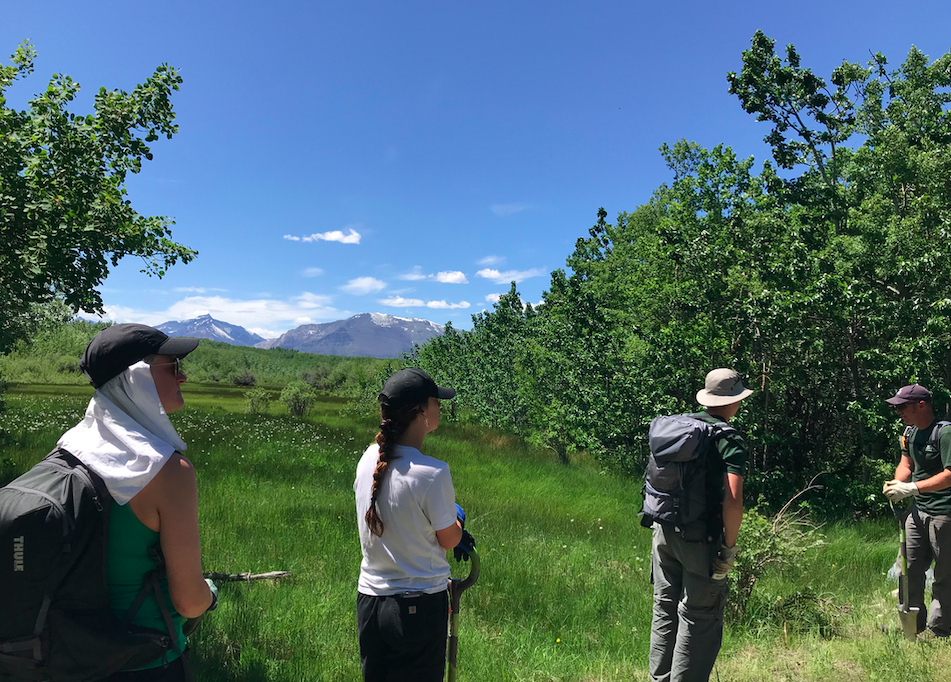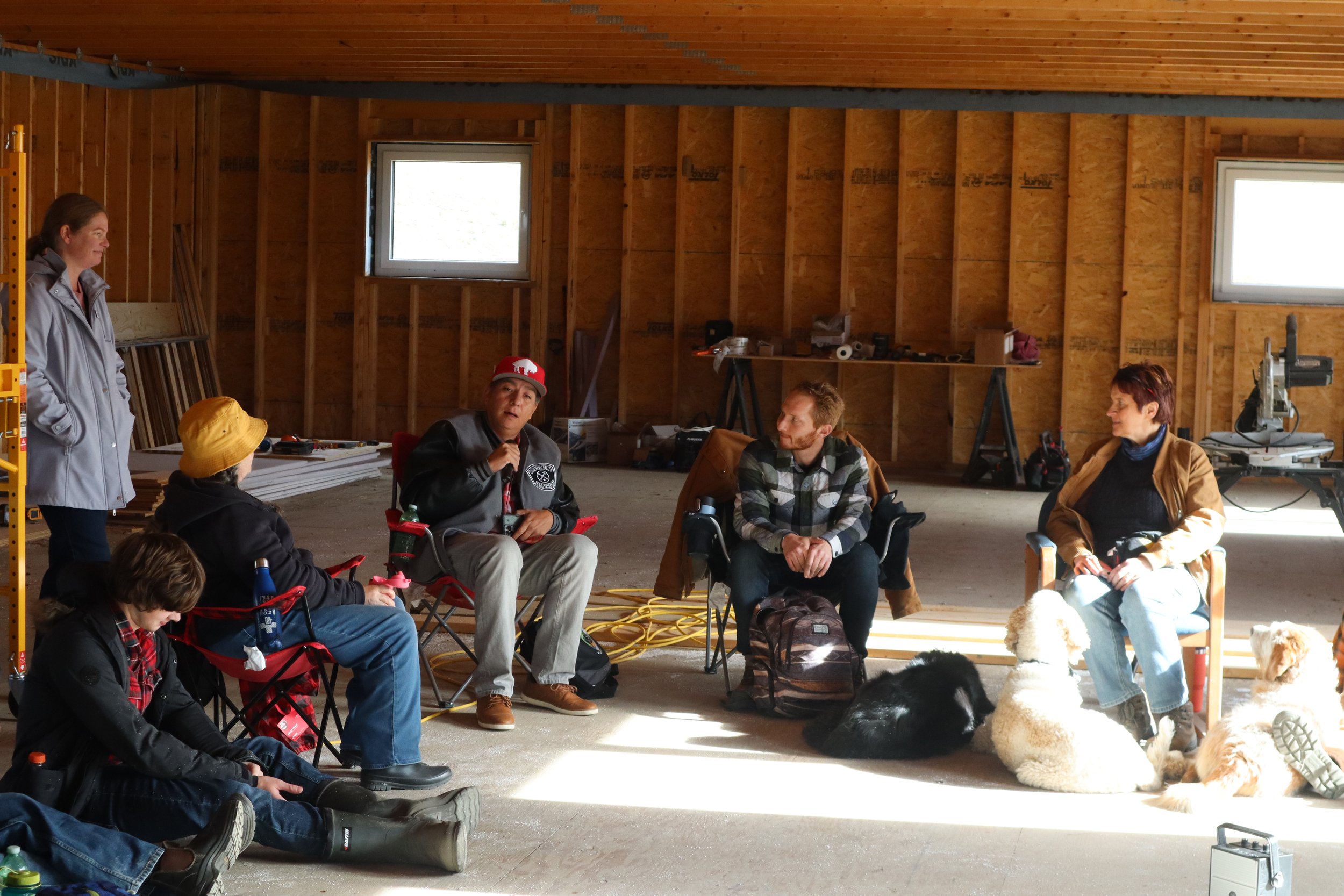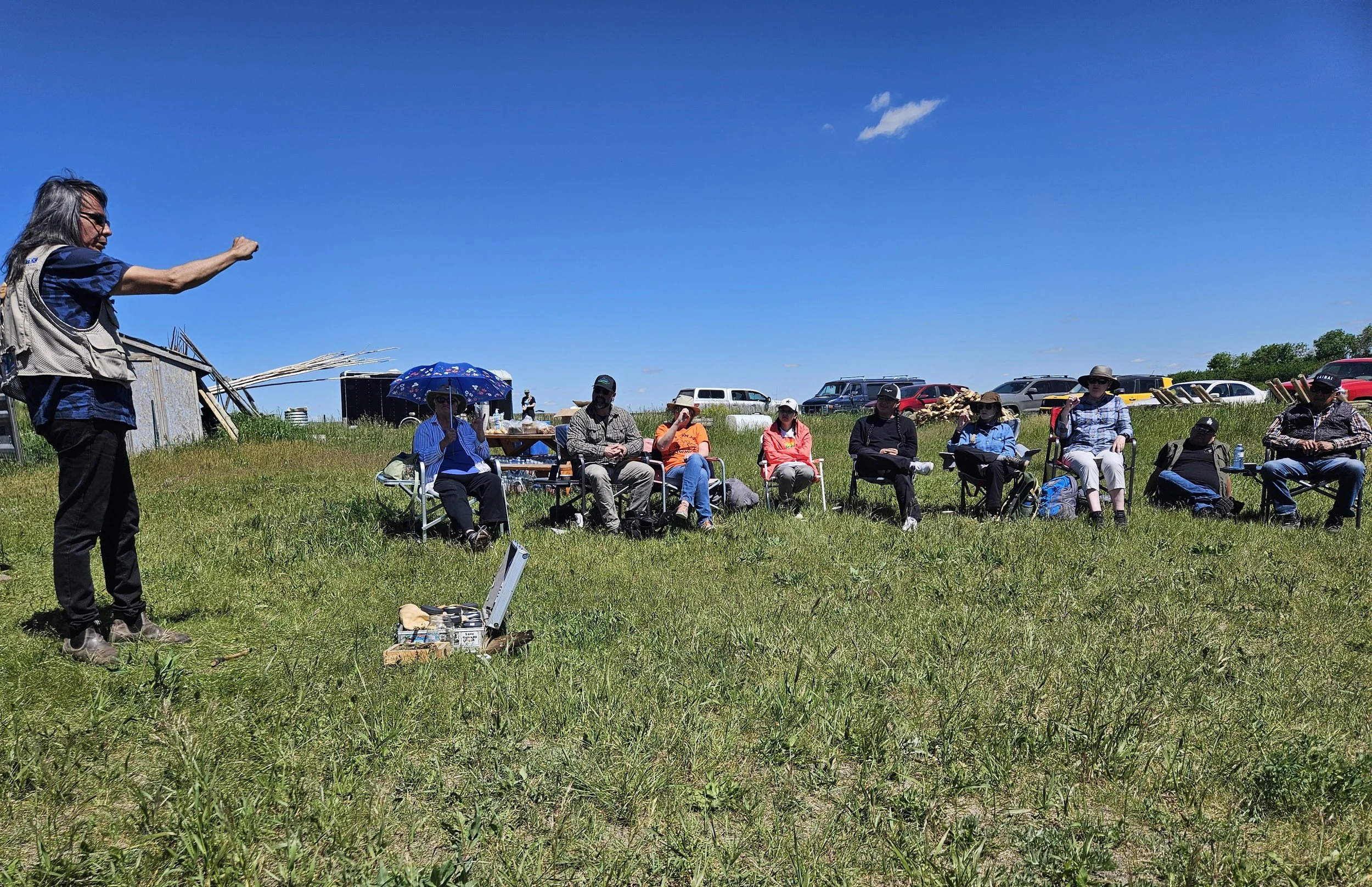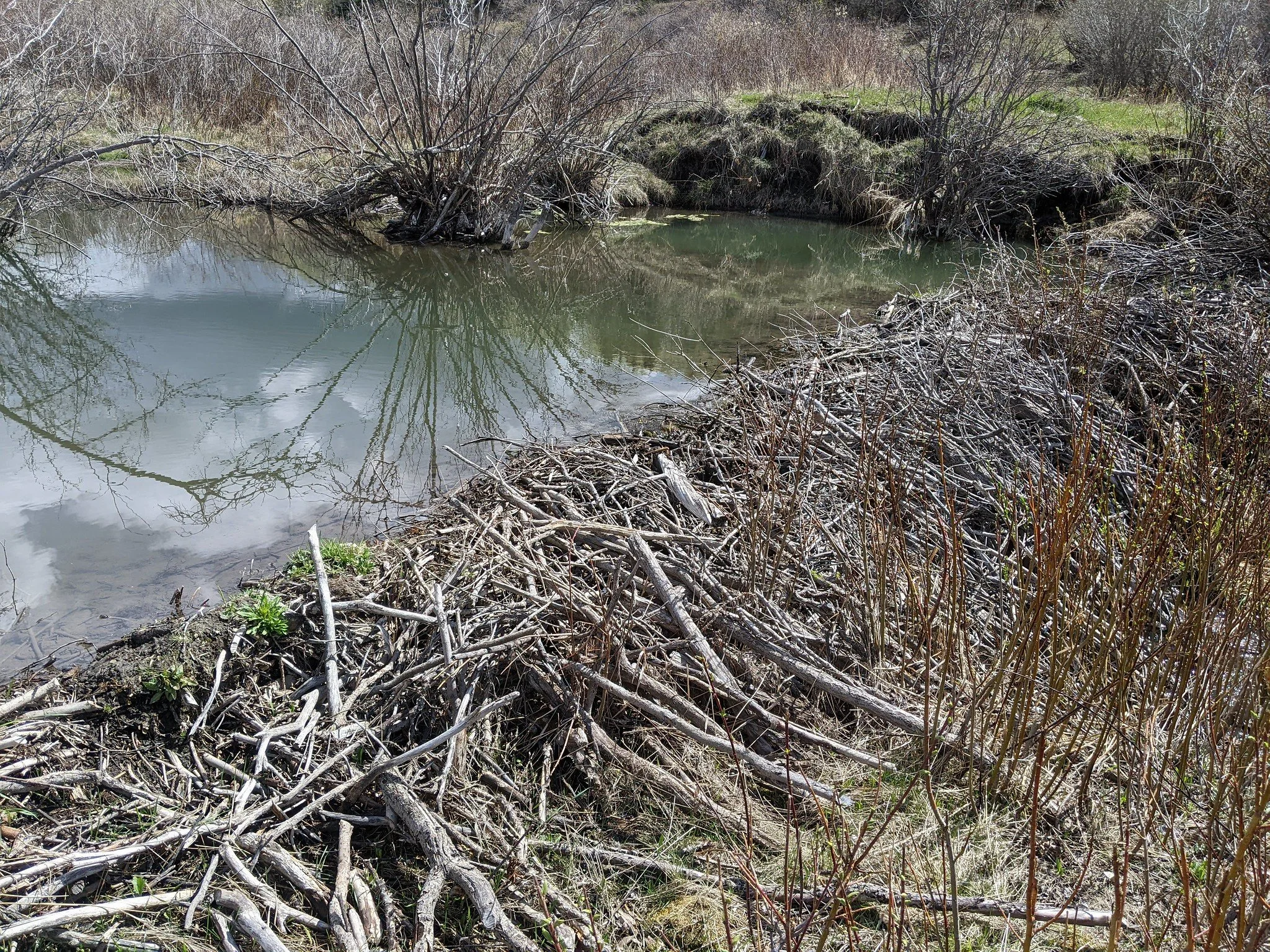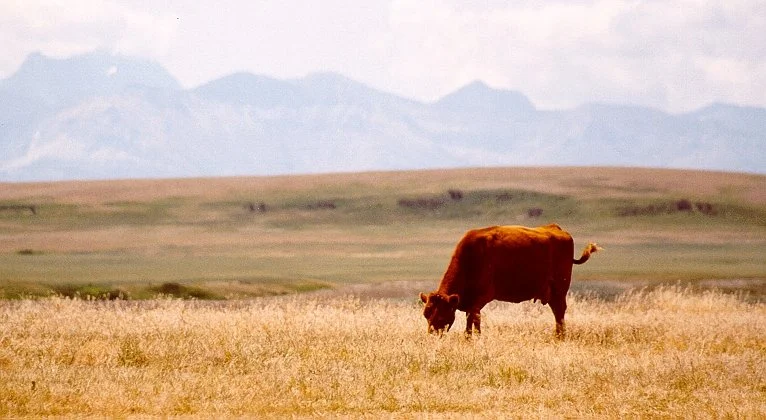Curl up with the kids on the sofa and enjoy our animated video! It tells the story of a little snowflake and how she becomes a potato! For young and old alike, this video is 1 of 3 produced in conjunction with the Potato Growers of Alberta ... Please share widely!
SACPA Maps & Timeline
SACPA recently invited us to present at the Lethbridge Public Library and give an update on our current research. Anna Garleff, Communications Specialist, and Shannon Frank, Executive Director, welcomed a full house and were excited to present history, maps, timelines and videos to the crowd. Thank you for coming - we had representation from throughout the watershed and we were thrilled to see everyone there. Here's the narrated PowerPoint for those who couldn't make it.
60,000 years ago to 2060 in the Oldman: Maps & Videos at SACPA's Public Library Event
How old is the Oldman? That is to say, how far back in human memory do we have stories about our region? SAPA and the Lethbridge Public Library are hosting the OWC on November 23rd at an EVENING EVENT sneak peek behind-the-scenes of our Film Project. We will be showcasing the research on our historical maps and timeline which underscore present-day watershed issues and the videos we are making about them. All are welcome, admission is free. We hope you will bring a friend and join us!
Building Relationships: In good company
You will probably have seen the 3 videos that are now out about urban watershed management and health. They are available on our You Tube channel. Now in the works are 3 videos on urban themes - again, from a scientific viewpoint, one for the kids and one for the public. Thanks to the Potato Growers of Alberta for their collaboration and support of our Film Project ... and this write-up!
City will Participate in Water Charter
The Oldman Watershed Council hopes to unite municipalities and organizations to protect the local water supply.
On Monday, Lethbridge City Council agreed to add their name to a Southern Alberta Water Charter proposed by the OWC. Signing the charter pledges action and commitment to the betterment of the health of the Oldman watershed.
New video! Minister of Environment & Parks and MLA Lethbridge East in the Headwaters
Recently, the OWC took Minister Phillips and MLA Fitzpatrick up to the headwaters for a tour of our area of special interest, Dutch Creek, and some flyfishing. We got the opportunity to capture some of it on film. In this clip, Minister Phillips explains how the OWC - and the other 10 Watershed Planning and Advisory Councils across Alberta - help inform her work.
New Video Release
Attend OWC's Annual General Meeting!
Join Us! This is your opportunity to catch up with friends, make new ones and have fun learning about OWC's accomplishments over the past year! Interactive games and unique door prizes top off this free event in Lethbridge! Register today!!
Interview with filmmaker Rick Searle
***SCREENING LIVE FOR WORLD WATERDAY MARCH 22*** With all the attention on the headwaters at the moment (it IS, after all, the first goal tackled via the OWC's Action Plans ....) it can be easy at times to forget what happens downstream. That, is, until disaster strikes like it did in the floods of 2013. Filmmaker Rick Searle explains how decisions made upstream helped contribute to a semi-arid corner of Manitoba being completely flooded ...
Celebrate World Water Day March 22
Government, Shovels ... and 5 other things you may not have heard about
We're in a race for $100,000
Lunch & Learn
Are you ready to try something new and fancy on your computer?
If I had only bet on the lottery instead ...
OWC April 2015 E-Newsletter
Kids These Days ...
I picked up the Lethbridge Herald on the way to work and began to peruse it as I sipped coffee at my desk. Would there be any local coverage of Earth Day, I wondered? Look no further than page A3, Hometown News. Tijana Martin's got a photo in there to accompany an article by Melissa Villeneuve. The photo shows Ty Marshall, 17, from Victoria Park High School. To compliment his very cool Black Sabbath T-Shirt and shades, his plastic gloves indicate serious business as he scours the coulees for garbage. So whoever said garbage-picking isn't cool?
 |
| Lethbridge Herald featuring the "Free the Children" Earth Day clean-up action. |
But there's more: in addition to participating in the Earth Day cleanup, they applied for, and were successful in procuring, $1,000 through the Telus "We Give Where We Live" program. These kids donated that money to the Lethbridge Food Bank. Environmental AND Social awareness?! Makes the Oldman just tear up at the thought of it. Seriously.
So who are the great teachers inspiring these kids? You don't have to look far - there is Mr. Sadlowski in the photo, bent over with garbage bag, right behind his student, camera slung over his shoulder, hoofing it up the coulee. Reading further, there is an additional teacher involved as co-facilitator - Karla Wright. Both teachers meet every Thursday at noon with the group, called "Free The Children".
It doesn't take the Oldman long to pick up the phone to thank the teachers and the students for their great work. A Thank You goes a long way - there is an endless supply of them, yet so few in circulation. Yes, you can quote me on that. I ask whether Mr. Sadlowski thinks the group would be interested in the OWC's Film Project. Part of the project involves reaching out to students. Donations from anyone under 18 to the Film Project are honoured with a professional photo opportunity with the OWC and a special blog posting (did you know our blog has had nearly 15,000 hits?!) Best of all, students will be invited to a free "How To Film The Watershed" seminar (to be offered in Taber, Lethbridge and Pincher Creek).
 |
| Follow #oldmangoestohollywood on Twitter for updates on the Film Project and great photos! |
Communication, after all, isn't only about "getting our message out there". It's also about supporting each other's efforts to make our watershed a better place to live, work and play - hearing each other's messages and acting on them.
Safe Drinking Water In Lethbridge - And Downstream!
The other day, we met with OWC's Chairman, Doug Kaupp, who is also the General Manager of Water and Wastewater for the City of Lethbridge. The City has generously sponsored the OWC Film Project as a Collaborative Partner. The OWC gets $5,000 to put toward the film-making, and the City gets three videos: one for kids, one for the public at large, and one for scientists. The Collaborative Partner gets the videos at a fraction of the commercial cost, and the Oldman gets to create invaluable educational material.
For the City's videos, we toured three main sites: the waste water treatment plant, the water treatment plant and some river locations for storm outfalls and other technology.
It's a good thing this is a story told in pictures and not in smells! ...but, here we go:

 |
This is a very complicated process.There are ten of these"sludge pools", bubbling and working away. |
 |
There is not an alien living in this tank. It is actually ultraviolet light, used to treat the water once it's past the sludge stage. It has a green tinge due to the algae. |
 |
On to the next stage! There are several buildings, each with it's own function, and all connected with massive pipes. |
 |
Jim MacDonald, left, is the Wastewater Plant Manager in Lethbridge. A lot of people are involved in making sure our water is clean and healthy for everyone downstream. |
 |
Away from all the plants and pipes and down to the Oldman River for some fresh air! We're going to see the weir (Get it?!!) |
OWC February 2015 E-Newsletter
OWC January 2015 E-Newsletter
 To view January's E-Newsletter, click here
To view January's E-Newsletter, click here
